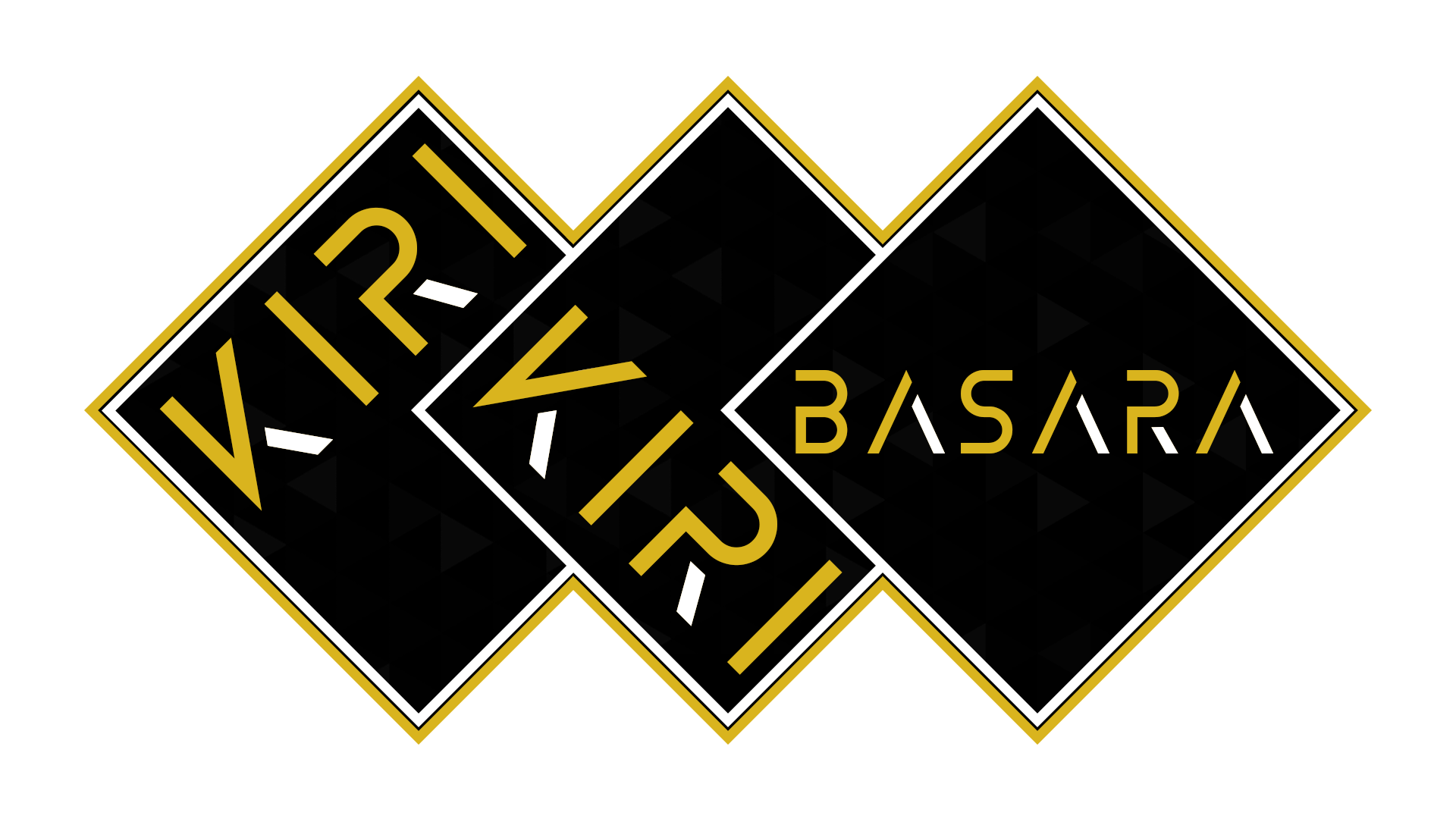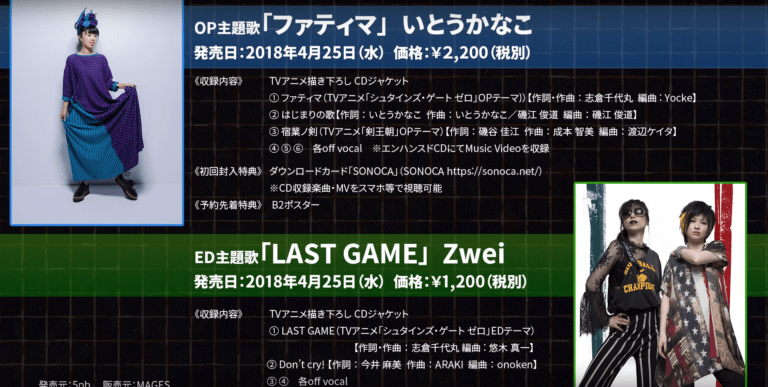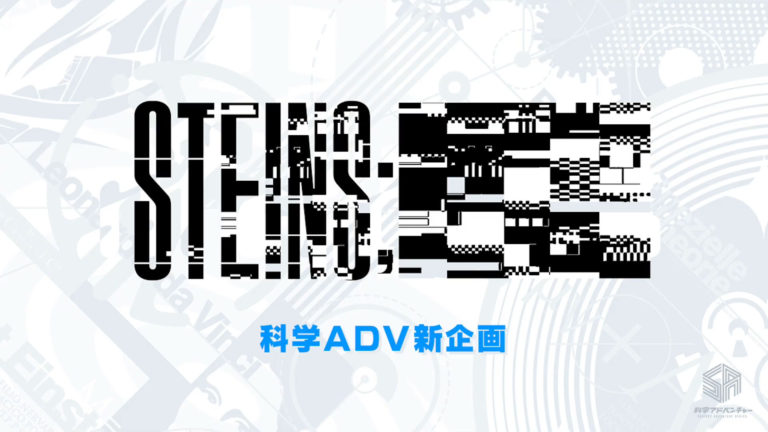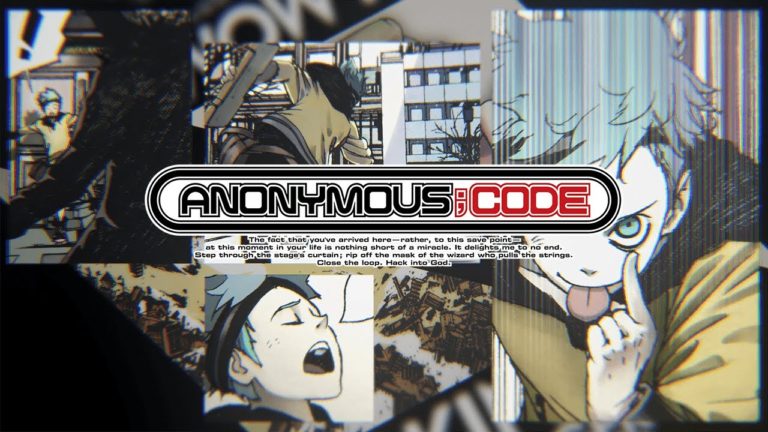Phantom Breaker: Omnia! Yeah, Science Adventure fans, LISTEN UP: this one’s got Kurisu and Rimi in it. You won’t want to miss this release!
…Up until three weeks ago, that was just about the only connection I felt I had to Phantom Breaker: that Kurisu and Rimi were in it. I didn’t play fighting games, and I was entirely unfamiliar with the Phantom Breaker lore and characters. Sure, it was cool to hear that there was going to be Science Adventure representation in Omnia, and I figured I’d buy it… but only out of a sense of obligation, I guess. I felt ambivalent about Phantom Breaker: Omnia.
But things have changed. As I’m writing this article, I’m listening to my current favorite Omnia track on loop. My PS3 sits plugged in in front of my monitor, Phantom Breaker: Extra installed on it. An eleven-page guide to using Sophia sits atop the console, printed out for easy access. I’ve even recently ordered Phantom Breaker’s official artbook, an eight-year-old artifact at this point.
What the heck happened to me? Why did I switch gears so quickly? Was I possessed by… a phantom?
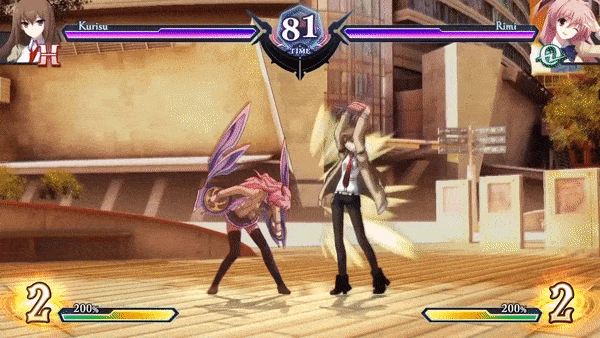
To be entirely honest, my sudden obsession with the series only came about by chance: I only just happened to click on one of Omnia’s character introduction trailers about three weeks ago, out of bored curiosity. And yet, that was all it took—that trailer sucked me in in seconds. I was instantly captivated by the voice actress’s powerful delivery, charmed by the rocking tune in the background, and utterly fascinated by the character’s unique weapon and fast-paced movements.
Basariters, I want you to do me a favor today: indulge me for just a little while. I know right now, a lot of you out there feel just as I did. You’re not sure if Phantom Breaker’s for you. You’re not all that interested in Omnia outside of the Science Adventure gals. But there is so much more to Phantom Breaker than Kurisu and Rimi to care about—its colorful cast, fast-paced gameplay, and rocking soundtrack scream passion, and if you’ll let me, I want to tell you all about it.
This isn’t going to be your traditional SciADV news article, but I hope you’ll stick with me all the same—I’m sure you’ll learn something new, and who knows? You may come away from it with a brand-new fervor for phantom-breaking. It would be an honor to be able to ignite that flame within any of you.
(Note: I have not been asked to write this article by any external parties, and I am not being compensated for it. These are my genuine personal impressions.)
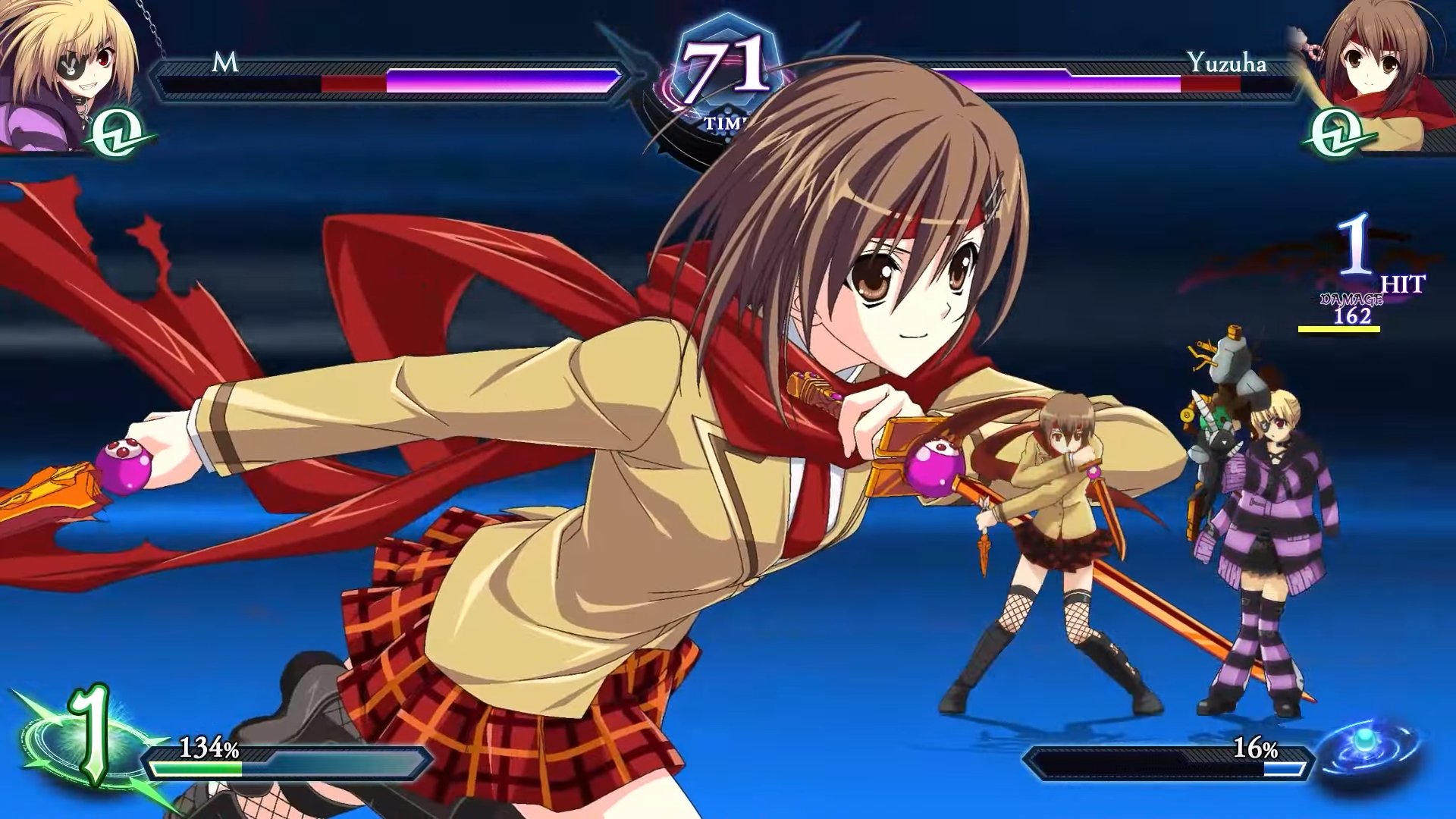
[Breaker, M.I.A.]
How about a quick history lesson?
Phantom Breaker has had a… checkered past in the West, to say the least. Did you know, for example, that the series’ first game had a planned official localization all the way back in 2011? If you didn’t, I don’t blame you; it never came out, after all.
The folks over at Gaming Hell have an excellent write-up chronicling the debacle, and I highly recommend giving it a read. The gist of it, though, is that the localization missed six whole planned release dates before falling off the face of the earth. English footage of the game exists, but the game itself never quite reached the hands of the English-speaking audience outside of a few review copies.
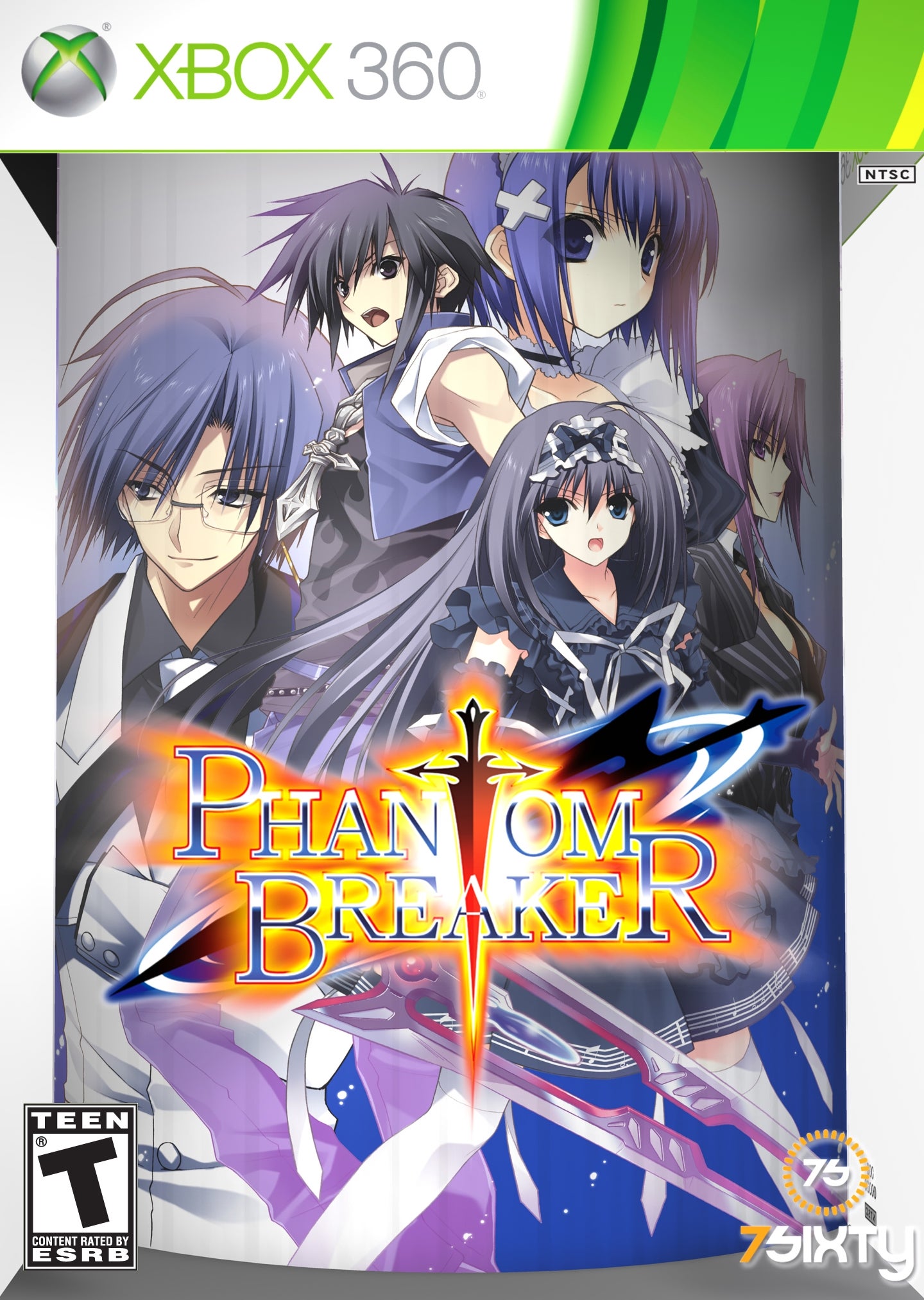
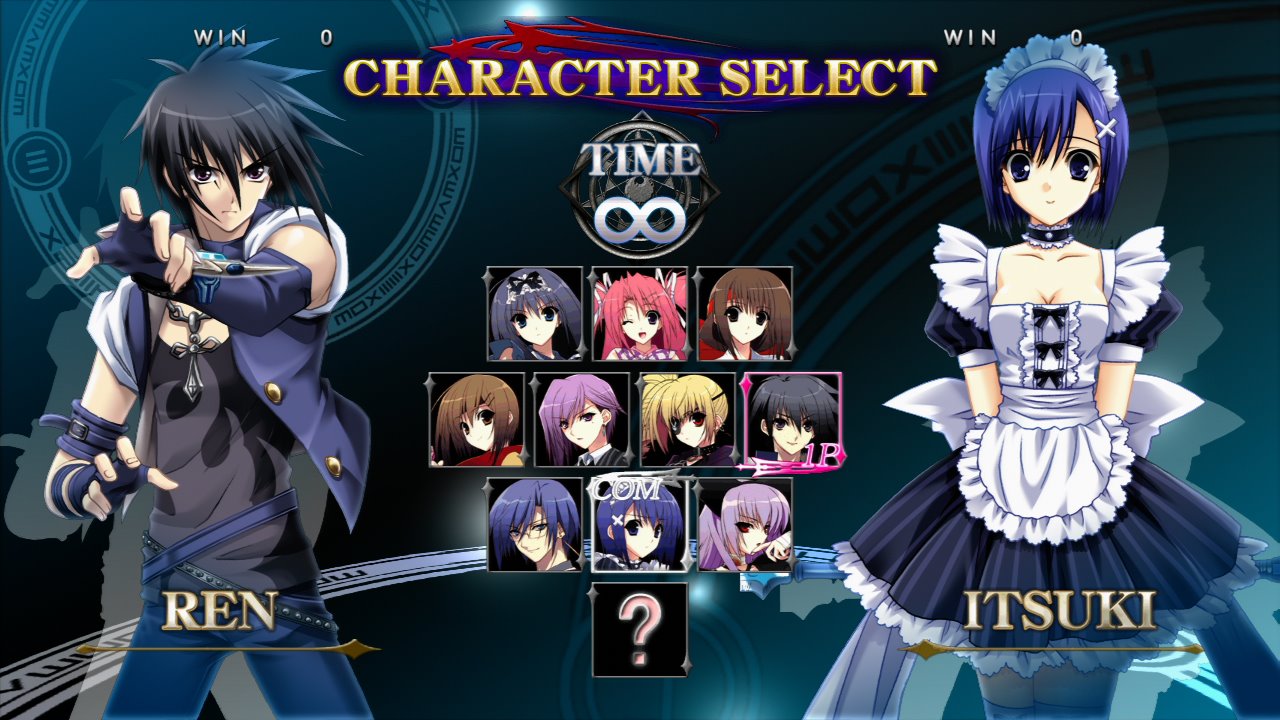
While we never got the proper introduction to the series, nor its upgraded sequel, Phantom Breaker: Extra, we did get the spin-off game, surprisingly. Phantom Breaker: Battle Grounds saw an English release in 2014 on the PlayStation Vita, and in later years would be ported to modern platforms.
Phantom Breaker: Battle Grounds broke away from series tradition in that it was a retro-styled beat-’em-up game, as opposed to a fighting game. Series producer Masaki Sakari cited this game as an “explosive hit,” which may well be one of the reasons why the series is getting…
[A second chance]
I feel that, for a few different reasons, “a second chance” is what we can call Phantom Breaker: Omnia. As a remake of the first two—the only two—mainline entries in the series, it’s going to be the perfect introduction point for us English-speaking players, who never got a proper chance to get invested in the Phantom Breaker universe. This is the MAGES.’ second chance at delivering their fighting-game series to a wider global audience.
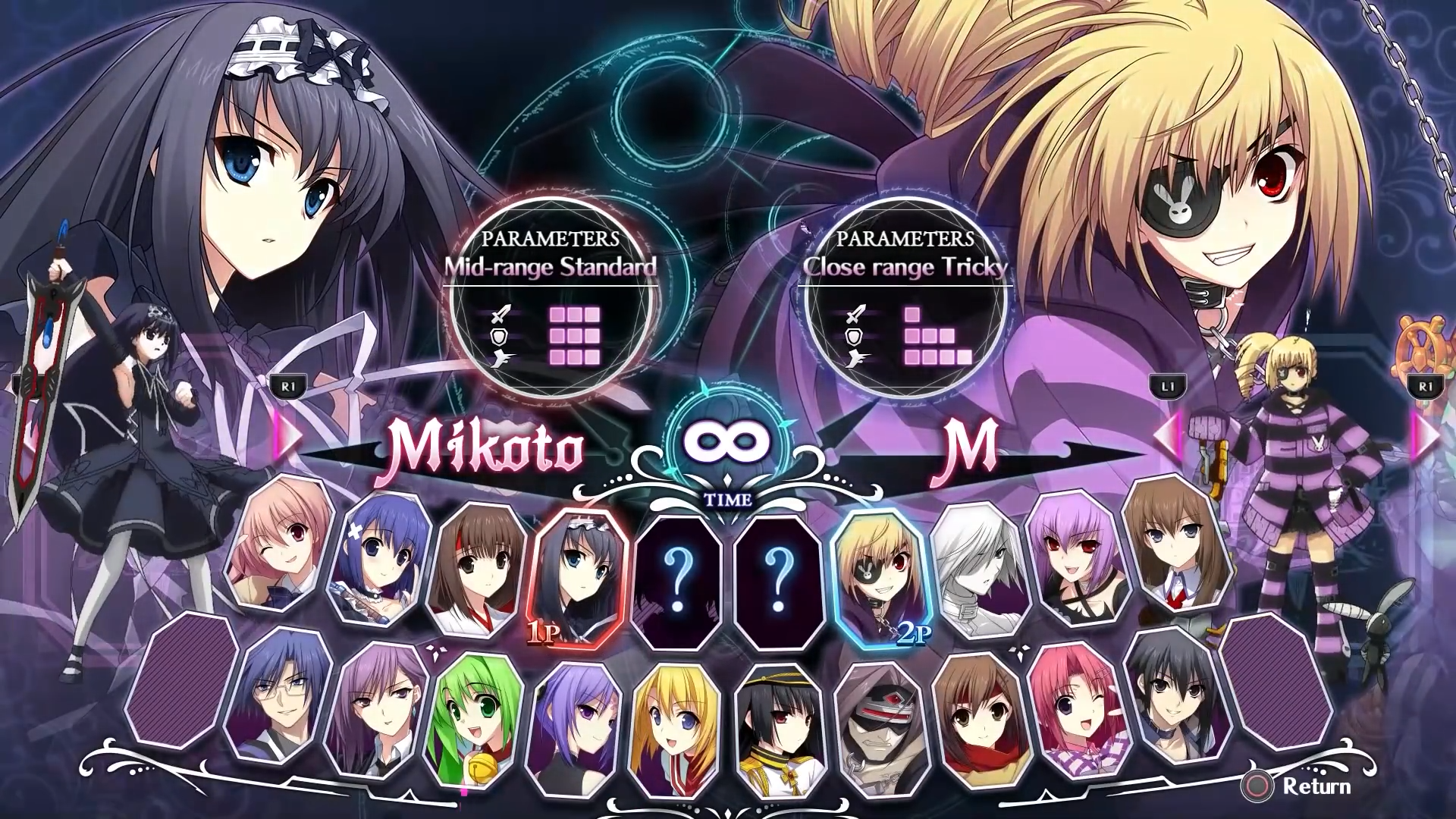
When we consider that the last mainline entry, Extra, released just over eight years ago, I think we can also make the claim that this is the series’ second chance at being… well, a series. Phantom Breaker has presumably been stuck in a rut for a fair while, with no new mainline entries to speak of since 2013. Producer Sakari has mentioned that he’s outlined a four-arc storyline for the the Phantom Breaker series as a whole, but as it stands, the existing two mainline games only cover Arc 1 and part of Arc 2.
Though it may only cover ground already tread, Omnia arguably represents a fresh beginning for the series in more than one sense. New fans aplenty will be had with its release, and if it succeeds (here’s hoping), everyone will win: Phantom Breaker enthusiasts new and old may finally get their true successor entry, a continuation to the long-standing storyline that never quite managed to get to its feet. Still…
[It’s a high-stakes battle]
As a remake-esque entry, Phantom Breaker: Omnia arguably needs to succeed. In the games industry, reboots and remakes of dormant series tend to serve dual purposes: they introduce new audiences to forgotten classics, but their sales also determine whether or not further entries are warranted and worth investing in. Successful retries get sequels, and failed attempts are left to the history books.
Unlike established anime-fighter series, like Melty Blood or Guilty Gear, Phantom Breaker doesn’t have the advantage of an existing fanbase driving sales. Few in the West are familiar with its characters, plot, or underlying fighting-game mechanics; Phantom Breaker is practically a brand-new series to us.
In situations like these, publishers arguably need to fight twice as hard to secure consumer attention—and I’ll argue that Rocket Panda Games has been nothing if not tenacious and creative in their efforts to do so.
This trailer from late last year got a lot of people talking, to say the least. Funny? Cringe? Way too overdone? The reactions to the narrator aside (I thought this one was hilarious), the video had its intended effect; it got the game in front of a lot of new eyes.
And even setting this one trailer aside, RPG has been doing a lot to drum up interest these last few months. They’ve been doing so much, in fact, that I’m struggling to track it all down…
- Character introduction trailers: perfect for breaking down each character of Omnia’s colorful cast, as well as introducing players to their potential mains.
- Full-match gameplay clips, so players can get a feel for match speed, gameplay mechanics, the works.
- A demo on Steam, so you can try the game out before it launches.
- Three brand-new songs produced exclusively for the game, featuring the vocal talents of Eir Aoi, Cristina Vee, Hiromi Channel, and AmaLee.
- Lo-fi remixes of remixes—specifically, those being done for the game by Epsilon Zero—freely available to listen to right now. And Phantom Breaker: Extra’s original soundtrack, composed by Takeshi Abo, too!
- Developer diaries, wherein the staff discusses the game’s development in depth.
- Giveaways, and a Phantom Breaker: Omnia card game, apparently(?!) I hope they’re planning on giving away more of these…
- A fleshed-out website featuring story and gameplay explanations, character introductions, and a simple, but sleek design.
- An official Discord server and semi-frequent Twitch streams. It’s nice to have these hubs for discussion and interaction.
The Omnia hype campaign is alive, thriving, and super diverse in its content—and if people like me are anything to go by, it’s working. I genuinely feel that a ton of love and effort is being put into spreading the word about the game, and the communication that’s happening is almost surprisingly in-depth. Omnia very clearly means a lot more to the people behind it than how well it sells.
Honestly, I think the work being done to get the word out about Omnia far eclipses what’s been done for any English localization in the Science Adventure series. Realizing that is… a bit disheartening. I’m a huge fan of what’s being done for Omnia, and I’m also really disappointed that this level of effort has never gone into the Western releases of MAGES.’ biggest franchise. But, hopefully this’ll be a trend going forward?
All this, and I haven’t even gotten into…
[The game itself]
Yeah, the exciting stuff!
There’s a lot to look forward to in terms of what Omnia includes. For starters, the game is getting a full English dub, which is huge news—dubs are extremely rare when it comes to MAGES.’ game library. The roster’s filled with known and talented voice actors, too: Erica Mendez, Kira Buckland, and Matthew Mercer to name a few. A full list is on the official FAQ.
I know not everyone’s into dubs, but in my opinion, a well-crafted dub can be equally, if not more resonant to an English speaker than the original voices. Plus, it’s nice to be able to understand what characters are yelling mid-battle, where there’s no room for subtitles.
In addition to English and Japanese subtitles, Omnia will also feature subtitle support in French, Italian, German, Spanish, and Simplified and Traditional Chinese. While this is a welcome feature for accessibility—more languages means more people can play—the downside to this is that the non-English translations will be based on the English translation, as opposed to the source Japanese text. This likely means an inherent loss in translation quality for the non-English translations, though I imagine opting for multiple source-to-result translations would have been a significant investment. I do hope, at least, that this decision will be reconsidered for future releases.
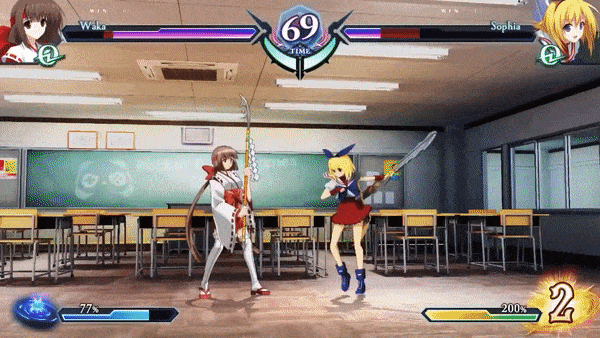
The gameplay, from what the demo has to offer, has been pretty damn fun! I’m not much of a fighting-game player—far from it—but I’ve been pumped enough about Omnia that I’ve started practicing a bit each day. Omnia is your standard fighting game… until it isn’t: you have your light, medium, and heavy attacks to pummel opponents with, but then you also have Overdrive mode, which slows down time so you can create massive, normally impossible chains of attacks. You have your standard guarding ability, but you can also entirely avoid an opponent’s attack by pressing a directional button at the exact right moment to “Slip Shift” through it. It’s strange, but fun to pull off.
As a novice, I can’t say my opinion holds too much sway, but I do generally feel as though Omnia’s different gameplay systems are fair. The match-ups between characters seem thought-out, with each having different strengths and weaknesses that clash in meaningful ways. There are moves that can sort of feel cheap—Phantom Breaks, for example, which are massively powerful super attacks, or Overdrive, mentioned above—but your being able to use them relies on how smartly you play, with clever moves filling up a meter for them. Smart placement, quick thinking, and Emergency Mode (a sort of get-out-of-jail-free card) can also protect you from these moves.
From what I’ve gathered, slow game speed was a common complaint about older Phantom Breaker entries. In my experience, Omnia matches are fast-paced, and decided in a reasonable amount of time. Rarely does it feel to me that a match is being dragged out, and the aforementioned Overdrives and Phantom Breaks ensure that decisively powerful, potentially tide-changing developments are happening throughout. This, among various other tweaks, helps Omnia feel like a Phantom Breaker experience further refined than its predecessors.
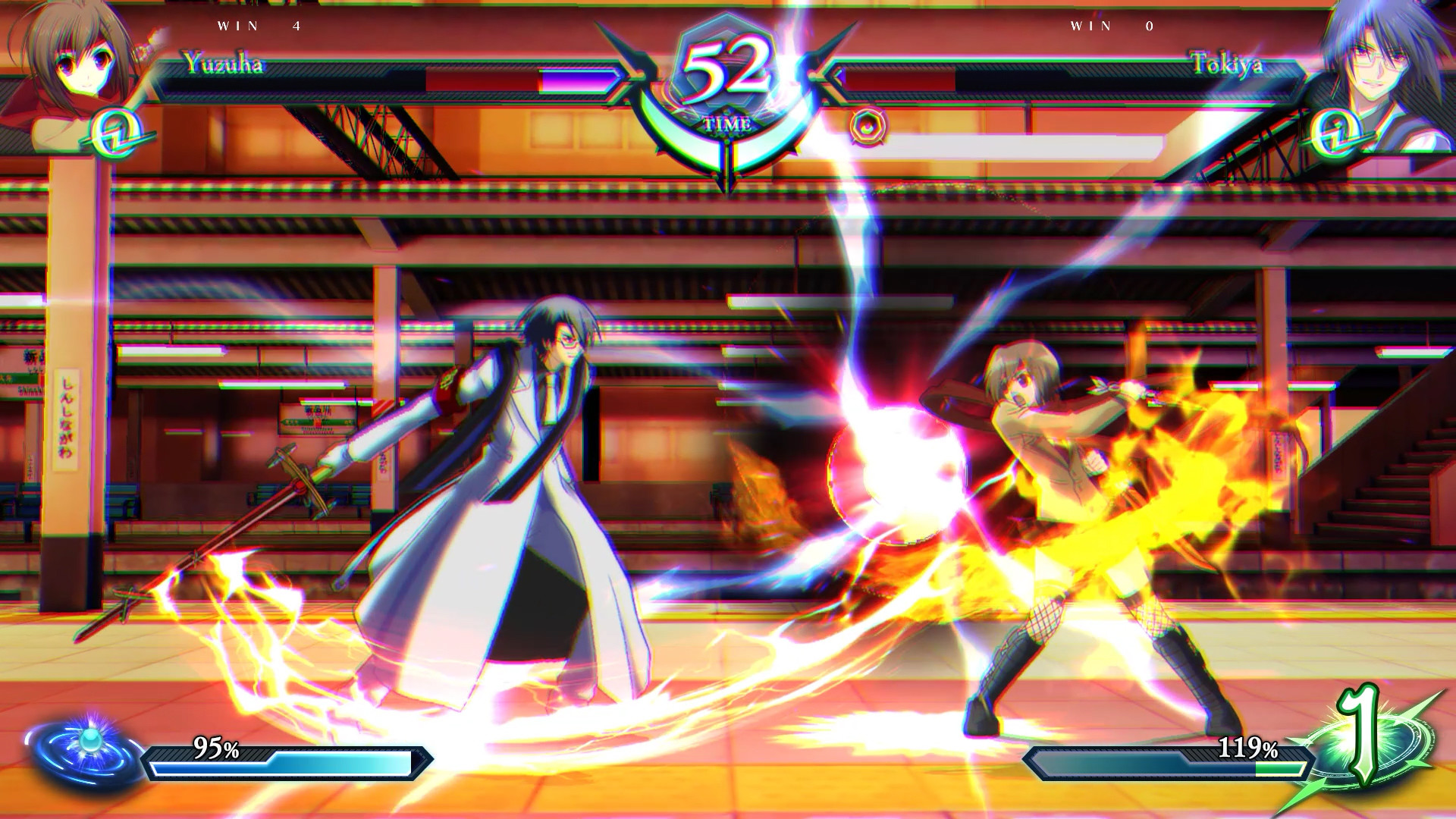
The demo currently has some wonky controller issues that I’m hoping will be addressed in the final game, though there is a fix out there for them. My main criticism, really, is that the demo doesn’t have the game’s training mode unlocked; you can only do CPU/local 1v1 battles among the four unlocked characters. I get the reasoning behind the limited roster, but I do wish I could practice combos and such a bit more easily. I’ve been playing Phantom Breaker: Extra recently to scratch that itch, but that’s just a matter of personal convenience; the Omnia demo still meets most practicing needs.
The cast of game’s cast of playable fighters is varied—to a fault, even. You’ve got two time travelers, a ninja, the spirit within a sword made flesh, an idol, the CEO of a pharmaceutical company, et cetera, et cetera…
There’s definitely way too much going on with Phantom Breaker’s cast, and it’s hard to keep track of who’s who, but… I’d argue that’s not a bad thing. If you’re like me and you take character backstories and traits equally (or more) seriously than fighting style, you’ve got a lot to choose from, a lot of potential mains to resonate with. That, I feel, is one of Phantom Breaker’s strengths. It may not be a necessary one, but I feel it’s a good one nonetheless.
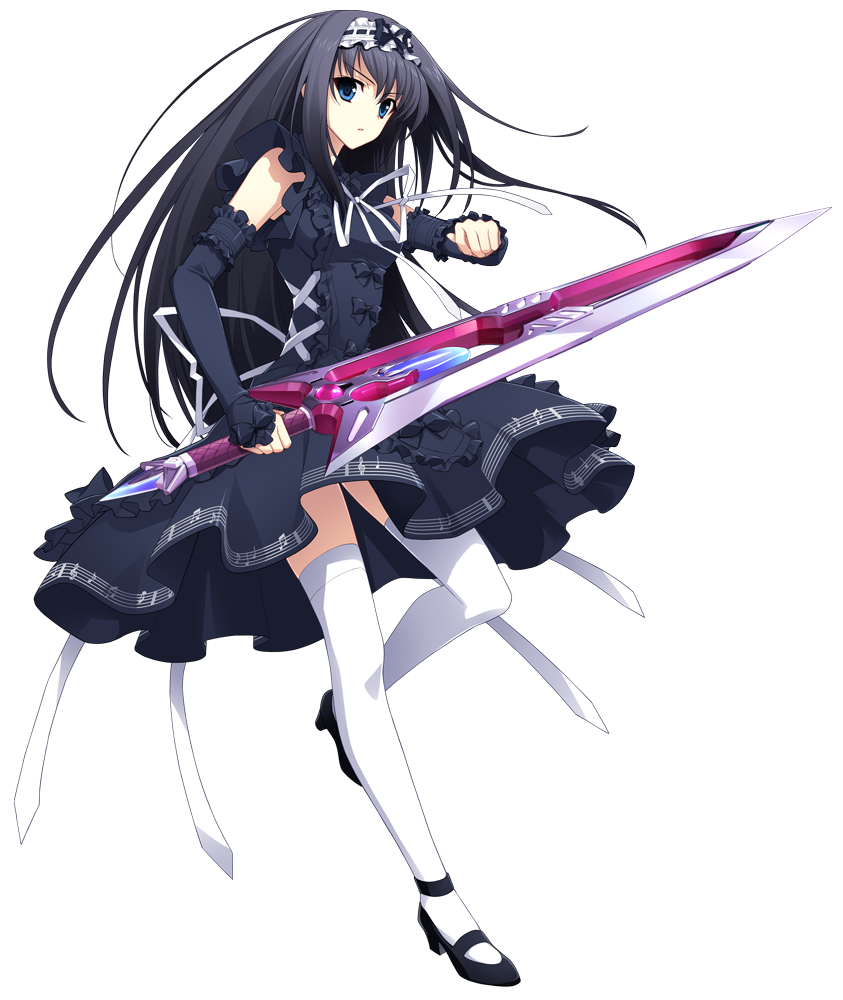

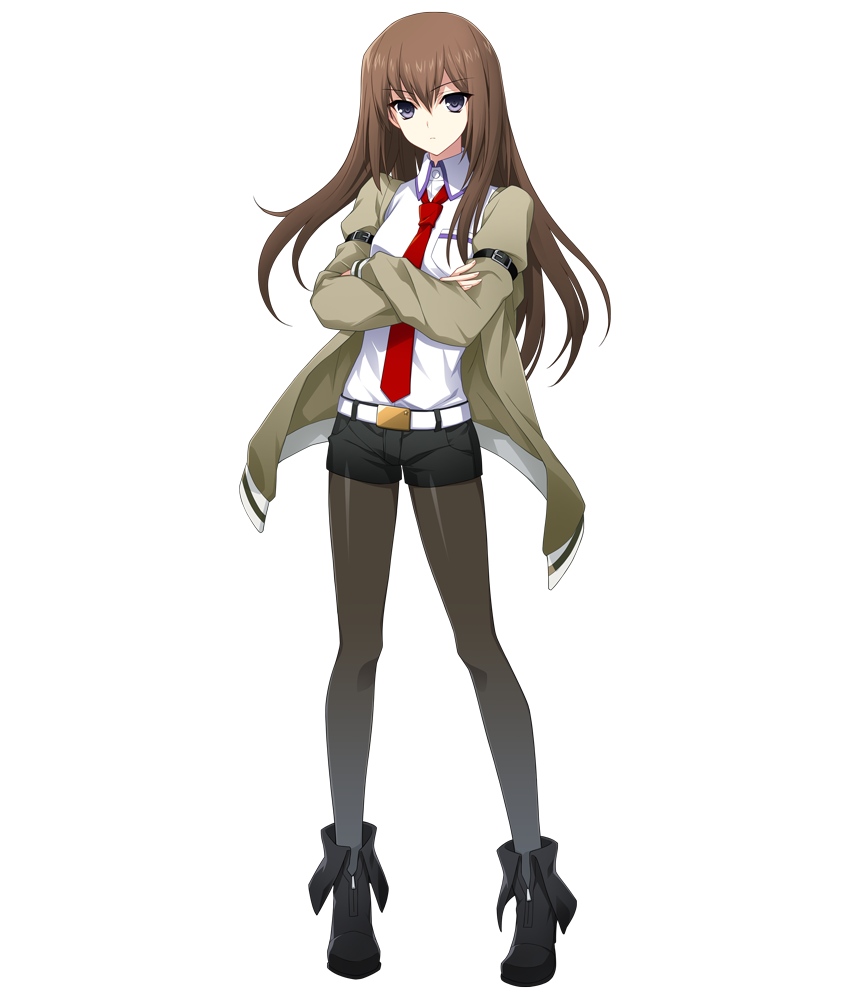
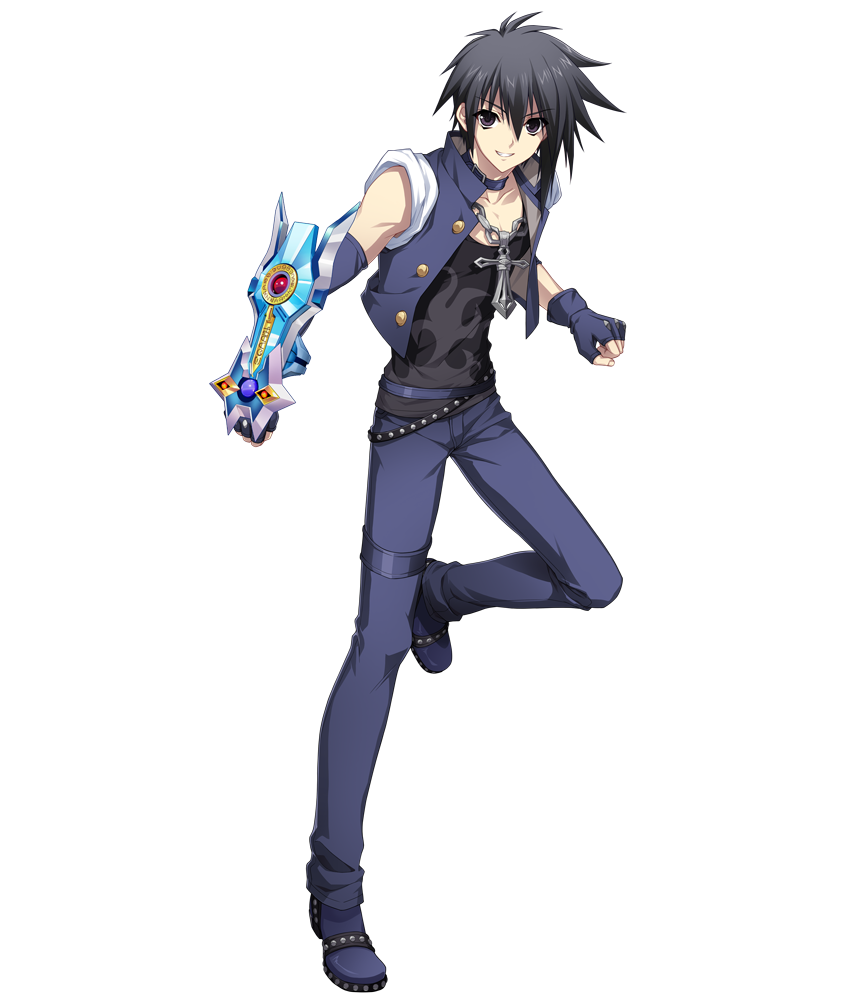
Omnia was seemingly built using Phantom Breaker: Extra as its base, which makes sense given the fact that Omnia is a remake of the first two games combined. The graphics, particularly the character sprites, are largely reused from Extra; while these are generally good or at least okay in terms of quality, I did notice a few derpy looking sprites that felt out of place next to the sleek UI, or the brand-new artwork. The animations, too, are usually decent enough—don’t go in expecting Guilty Gear-tier butter, though.
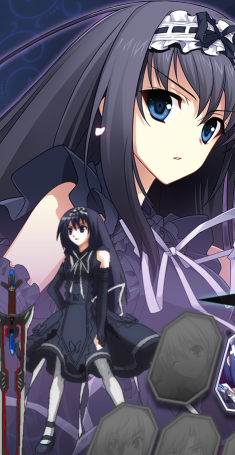
The soundtrack, from what I’ve heard of it, is pretty strong on a lot of fronts (disclaimer: I’m not a music man, either). Takeshi Abo’s original compositions are about the level of quality I’ve come to expect from his work—that is to say, catchy and addictive. Epsilon Zero’s work is a more modern take on Abo’s; I really enjoy his remixes of Sophia’s and Rimi’s themes, for instance, though I’m more iffy on his remix of Kurisu’s theme. His lo-fi remixes are awesome for study sessions.
What’s probably the most sour side effect of Omnia being built on top of Extra is, unfortunately, the lack of rollback netcode. I’ll leave the detailed explanation to this excellent video, but in short, rollback netcode almost always beats out traditional netcode when you’re playing online, as it significantly reduces the delay between your button presses and the actions on the screen.
Omnia lacking rollback netcode is tragic, and there’s really no getting around that. According to the game’s FAQ, there was interest in implementing it, but doing so would have required rebuilding the game from scratch, essentially negating any benefits to be had by reusing old material. It really is a massive shame, and I’m hoping future Phantom Breaker games, if they happen, won’t also suffer from this loss.
[Closing out]
All in all, despite the few issues that have come up, my Omnia impressions are soaring. Phantom Breaker has entered my bloodstream; it’s been in it these last three weeks, and probably will be for the next three months (years) to come. “The fire in my heart is burning,” and I should probably see my doctor about that.
Kiri Kiri Basara generally covers visual novel and anime content, so I know plenty of you in the audience are still on the fence about Omnia. It’s a fighting game, after all. I get it.
But if this article has sparked any interest at all within you, you know what I’m going to say. Check out the demo on Steam. Maybe look at some of the character introduction trailers, or listen to one of the soundtracks. There’s tons to get invested in here beyond Rimi and Kurisu. I think it’s just a matter of finding what, or who, you resonate with.
Peace out, Basariters. I’ll see you on the battlegrounds.
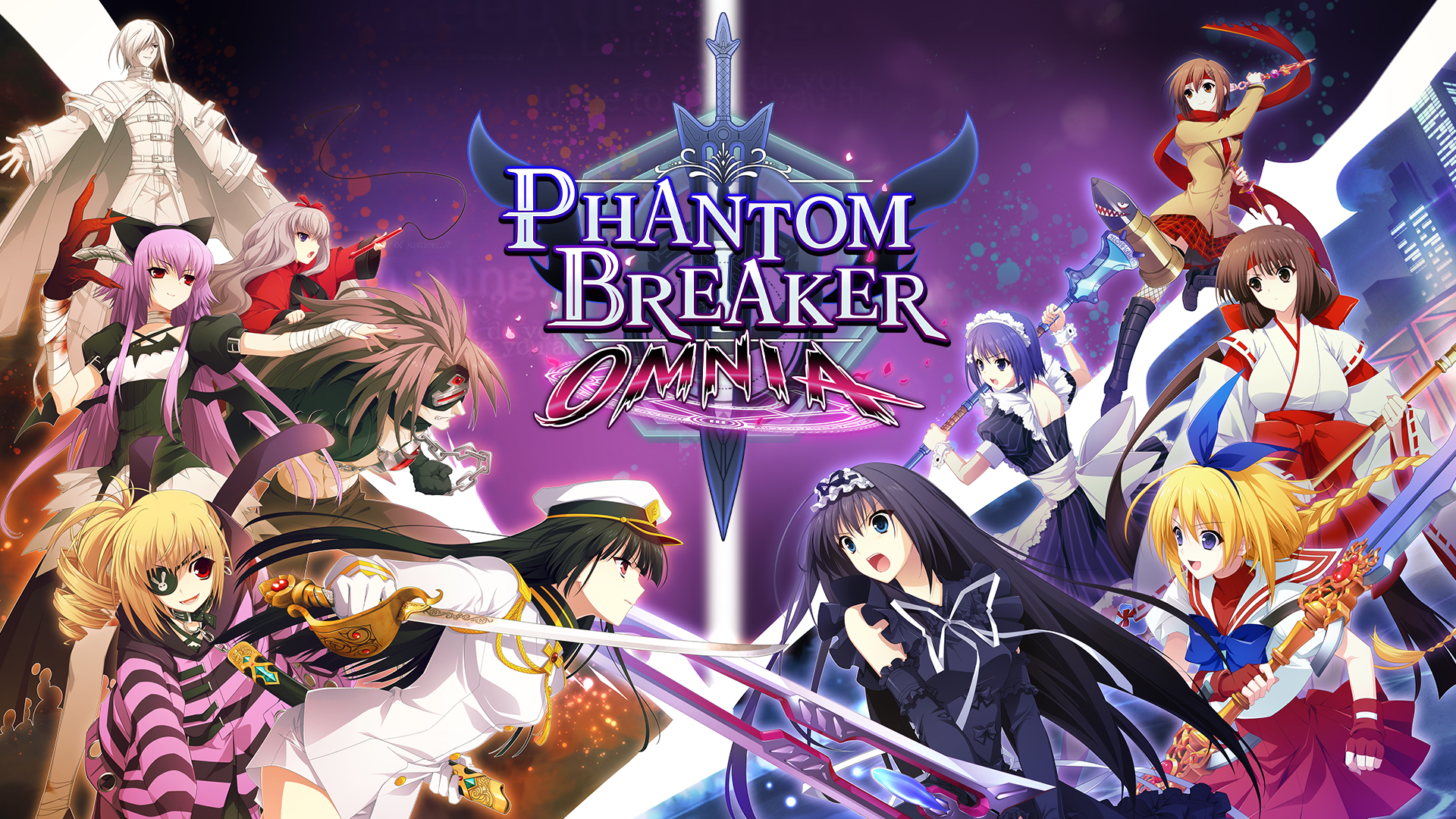
Phantom Breaker: Omnia will release on March 15, 2022. Its planned release platforms are PC via Steam, the Nintendo Switch, the PlayStation 4, and the Xbox One. A physical edition by Limited Run Games is planned for a later date.
